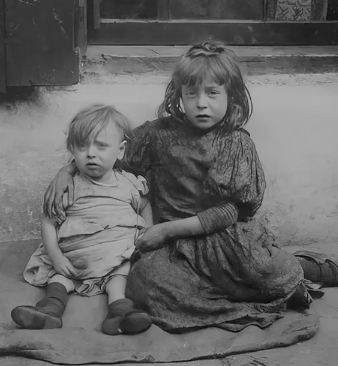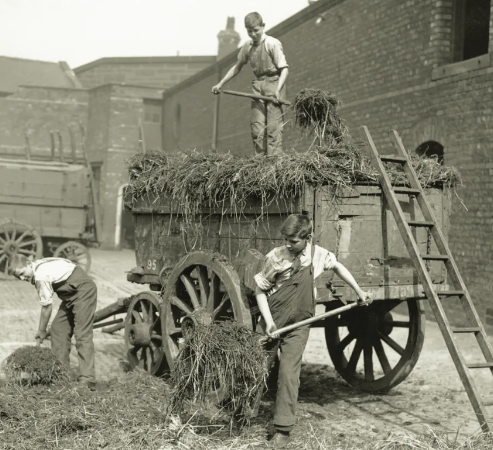All About That Place.
A reminder about this free learning event brought to you by the Society of Genealogists, the Society for One Place Studies, British Association for Local History and Genealogy Stories. Until Sunday 6 October. 140 recorded 10-minute talks on genealogy and local history.
https://www.sog.org.uk/all-about-that-place-2024
Tuesday, 1 October
2 pm: Ottawa Virtual Genealogy Drop-in, for Ottawa Branch OGS
https://ottawa.ogs.on.ca/events/virtual-genealogy-drop-in-2-2024-10-01/
7 pm: All About That Place, Pacific Edition, featuring Allison DePrey Singleton and Karen de Bruyne for Allen County Public Library Genealogy Center.
https://acpl.libnet.info/event/11780176
10 pm: Oops! Married twice (at the same time) Case Studies in Bigamy! by Helen V Smith for Legacy Family Tree Webinars.
https://familytreewebinars.com/webinar/oops-married-twice-at-the-same-time-case-studies-in-bigamy/
Wednesday, 2 October
2 pm: Let’s Continue With 50 More Overlooked Genealogical Resources, by Diane L Richard for Legacy Family Tree Webinars.
https://familytreewebinars.com/webinar/lets-continue-with-50-more-overlooked-genealogical-resources/
2 pm: Wednesdays With Witcher: The Power of Story Revisited –It Is a Big Deal, by Curt Witcher for Allen County Public Library Genealogy Center.
https://acpl.libnet.info/event/11773274
7:30 pm: Huron Branch – Access the Archives, by Michael Molnar for OGS Huron Branch.
https://huron.ogs.on.ca/events/huron-branch-michael-molnar/
Thursday, 3 October
7 pm: Practical Tools for Family History Writers, by Laura Hedgecock for OGS.
https://ogs.on.ca/october-webinar-practical-tools-for-family-history-writers-laura-hedgecock/
7:30 pm: All Kinds of Loyalists, by Kathryn Lake Hogan for Durham Branch OGS.
https://timetraces.com/durhambranch/
Friday, 4 October
2 pm: Collecting and Compiling Plantation Records: Thomas Terrell Case Study, Orice Jenkins for Legacy Family Tree Webinars.
https://familytreewebinars.com/webinar/collecting-and-compiling-plantation-records-thomas-terrell-case-study/
Saturday, 5 October
10 am: Unearthed Memories: Discovering Historical Treasures in my Heritage Garden, by Noelle Tangredi for OGS London Middlesex Branch.
https://londonmiddlesex.ogs.on.ca/events/london-and-middlesex-branch-unearthed-memories-discovering-historical-treasures-in-my-heritage-garden/
2 pm: The Emigrants Story of an Irish Families Journey to Gilford in the Spring 1847 – The Rathwell Family, by Nick Hurdman for OGS Simcoe Branch.
https://simcoe.ogs.on.ca/branch-meetings/


 Only until 6 October 2024 at 11:59 pm, upload your DNA data to MyHeritage to get full free access to all advanced DNA features. That includes the Ethnicity Estimate and Genetic Groups, DNA Matches, and all tools to analyze your relationship to your matches. That saves the usual $29 unlock fee per file.
Only until 6 October 2024 at 11:59 pm, upload your DNA data to MyHeritage to get full free access to all advanced DNA features. That includes the Ethnicity Estimate and Genetic Groups, DNA Matches, and all tools to analyze your relationship to your matches. That saves the usual $29 unlock fee per file.
 FreeBMD Database was updated on Friday, 27 September 2024, to contain 291,560,221 unique records, up from 291,402,577.
FreeBMD Database was updated on Friday, 27 September 2024, to contain 291,560,221 unique records, up from 291,402,577. The program brought around 100,000 young immigrants to Canada. Despite its flaws, it offered many opportunities for a better and healthier life than they might have had in Britain1. We must acknowledge the dedication of the leaders of the charitable agencies who, lamenting the plight of needy children on Britain’s mean streets, took action to move them into a more promising situation.
The program brought around 100,000 young immigrants to Canada. Despite its flaws, it offered many opportunities for a better and healthier life than they might have had in Britain1. We must acknowledge the dedication of the leaders of the charitable agencies who, lamenting the plight of needy children on Britain’s mean streets, took action to move them into a more promising situation.